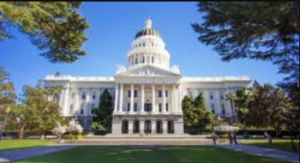 Some Bills on Charter Oversight Advance in Legislature
Some Bills on Charter Oversight Advance in Legislature
Some, but not all, of the most important bills affecting charter authorizing have been reported out of their first committees. Staff analyses summarizing the bills’ provisions, providing the legal and policy background, highlighting arguments for and against, and describing proposed committee amendments, are available at the links on the bill numbers below.
AB 84, the complex bill introduced by Assembly Education Committee Chair Al Muratsuchi (D-Torrance) incorporating recommendations from last year’s reports resulting from the A3 Charter Schools fraud case, including some from CCAP’s task force, as well as other provisions, passed the Committee in amended form on a 7-2 vote. The San Diego Union-Tribune has a detailed article on the measure. Among other things, the amendments would:
- Place the proposed Office of the Inspector General, a CCAP recommendation, under the State Board of Education (SBE) instead of under the Superintendent of Public Instruction;
- Starting July 1, 2028, require an authorizer to attend a meeting of the charter’s governing board annually and also, if applicable, a meeting of the governing body of the entity managing the charter school, and review the agendas and minutes of those meetings;
- Starting July 1, 2028, annually monitor payments of the charter school to verify that they are legal and have proper authorization, including review of credit statements, debit card statements, other electronic payment methods and media, and bank statements;
- Simplify the ADA-based restriction on a district’s authorization of non classroom-based (NCB) schools and add an exception for a district that employs at least four executive-level staff members who cover the responsibilities related to superintendent, chief business official, human resources, special education, and curriculum; and
- Exempt “dependent” county charter schools from the proposed reductions in funding for students in NCB school funding that would be inversely related to the percentage of their time in classroom-based instruction.
SB 414, an alternative to AB 84 introduced by State Senator Angelique Ashby (D-Sacramento) and sponsored by charter school organizations, has been passed unanimously, although with amendments, by both the State Education and Judiciary Committees and has now been referred to the Appropriations Committee. Among other things, the amendments:
- Remove the proposed rebranding of NCB schools as “flex-based” schools;
- Strike proposed changes to the SBE NCB school funding determination process;
- Eliminate a proposed study of authorizing models from other states;
- Require background checks for all vendor personnel who interact with students, regardless of supervision status; and
- Eliminate proposed immunity for charter schools from liability for privacy violations in submitting information for oversight purposes.
SB 719 had been scheduled for a hearing in the Senate Education Committee, but that hearing was postponed. The bill would enact some of the recommendations on audits from the State Controller’s Multi-Agency Charter School Audits Task Force and was introduced by State Senator Christopher Cabaldon (D-Davis), a member of the Senate Education Committee; and
AB 1493 on verified data was not passed by the Assembly Education Committee, despite the support of Chair Muratsuchi. Introduced by Assembly member Anamarie Farias (D-Contra Costa), the bill would have extended the use of SBE-approved measures of student academic growth until the incorporation into the California School Dashboard of an academic growth measure. CCAP has circulated a letter to members noting the current limitations of the Dashboard for high-stakes decisions on some charters, as well as making suggestions for addressing some of the concerns some authorizers have had about utilizing verified data.
A plenary panel at CCAP’s California Charter Authorizers Conference next month will discuss California’s political and policy landscape and outlook for charter school authorizing, including the latest legislative developments.
